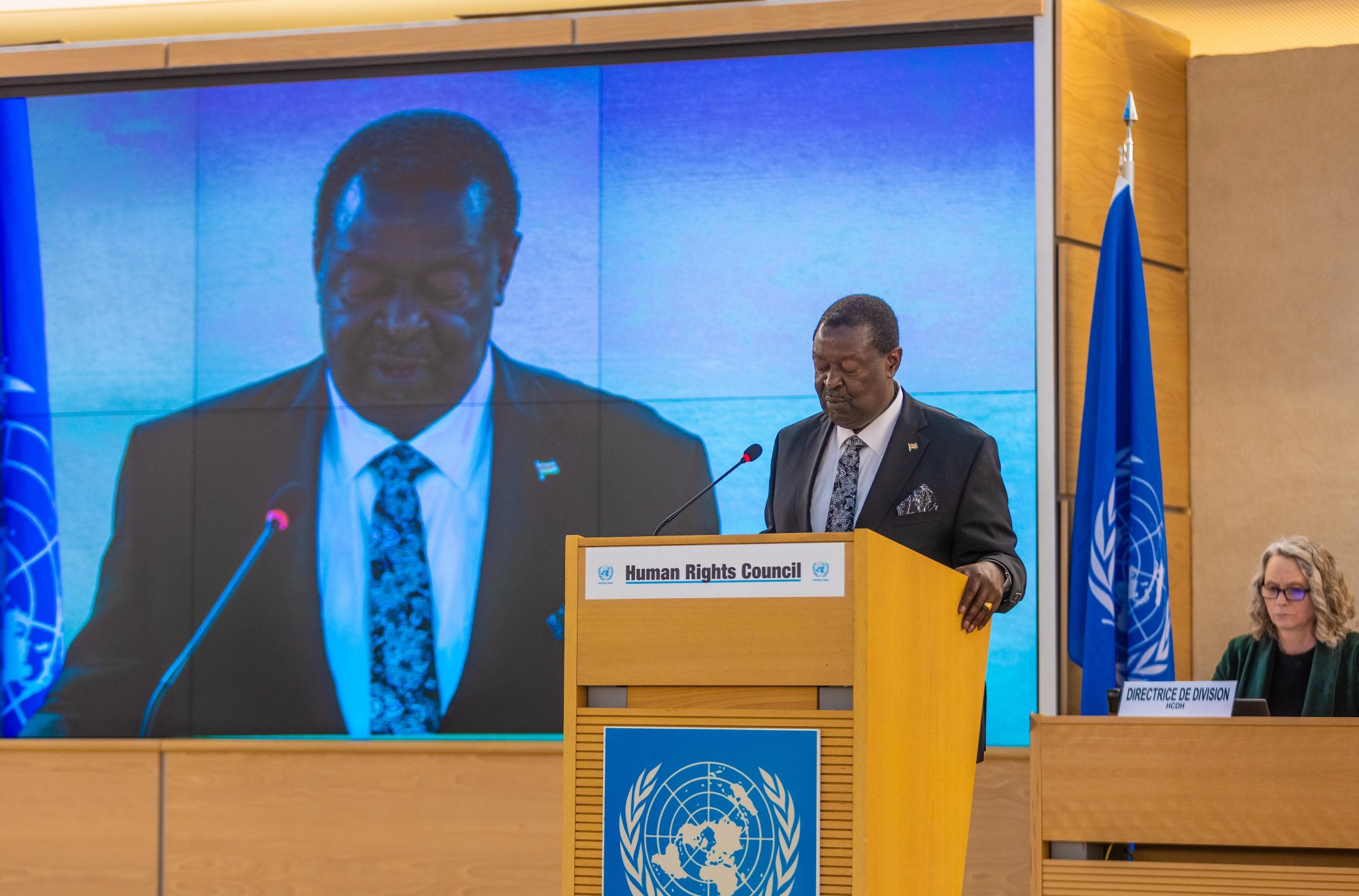
The world must confront colonialism’s lasting impact, Mudavadi
Prime Cabinet Secretary and Foreign and Diaspora Affairs Cabinet Secretary Musalia Mudavadi has called for global efforts to confront the lingering effects of colonialism, tackle modern-day discrimination and promote justice and equity for all.
Speaking at the opening of the 58th Session of the Human Rights Council at the United Nations headquarters in Geneva, Switzerland, Mudavadi reaffirmed Kenya’s commitment to advocating for marginalized communities amid rising xenophobia, Afrophobia and racial discrimination.
“As the current Chair Rapporteur of the Intergovernmental Working Group on the Durban Declaration, Kenya is dedicated to combating racism and related intolerance. We welcome the Second International Decade for People of African Descent and its focus on reparatory justice and development,” Mudavadi stated.
The PCS highlighted Africa’s commitment to justice, pointing to the African Union’s 2025 theme, ‘Justice for Africans and The People of African Descent Through Reparations,’ as a demonstration of the continent’s resolve to address historical injustices.
Mudavadi acknowledged the evolving landscape of human rights in the digital age, noting that Kenya is reviewing its 2014 National Policy and Action Plan on Human Rights to integrate emerging issues related to technology and the digital divide.
“We recognize challenges such as disinformation campaigns fueled by generative AI, the weaponization of technology, and its dual-use nature, which must be mitigated. However, as Africa’s ‘Silicon Savannah,’ Kenya is equally aware of the transformative potential of technologies such as Artificial Intelligence in advancing development,” he said.
Mudavadi revealed that Kenya is developing a National AI Strategy 2025-2030, which focuses on strengthening data sovereignty and inclusive development.
He urged the Human Rights Council to play a pivotal role in promoting equitable access to emerging technologies and critical infrastructure to ensure full participation in the information society.
Turning to global peace, Mudavadi raised concerns over increasing wars and conflicts that have led to grave human rights violations, including crimes against humanity, war crimes, and genocide.
He noted that ongoing conflicts in Sudan, the Democratic Republic of Congo (DRC), Libya, Gaza, Lebanon, Ukraine, Haiti and Myanmar have fueled humanitarian catastrophes worldwide.
“In the DRC alone, reports indicate that cases of sexual violence, including the rape of children as young as 12, increased fivefold in just one week between January 27 and February 2, 2025,” he said, underscoring the urgent need for intervention.
He cited projections from the United Nations High Commissioner for Refugees (UNHCR) indicating that by 2025, over 139 million people globally will be forcibly displaced or become stateless due to conflicts, with nearly 47 million children affected, according to UNICEF.
Mudavadi reaffirmed Kenya’s commitment to peace initiatives in conflict-prone regions such as Sudan, Somalia and Haiti, emphasizing that sustainable peace is intrinsically linked to human rights protection.
He urged the Council to incorporate human rights considerations into peace missions and conflict resolution mechanisms.
The PCS further emphasized the need for structural changes in the Global Financial Architecture, advocating for local solutions to regional problems.
He highlighted Kenya’s stance on promoting discussions around a “human rights economy” and called for a reformed financial system to enable nations to uphold their human rights obligations effectively.
Recognizing corruption as a major impediment to human rights, Mudavadi stated that Kenya continues to strengthen institutions, legislation, and policies to combat graft through bodies such as the Ethics and Anti-Corruption Commission (EACC).
“Corruption often facilitates and aggravates human rights violations, particularly against vulnerable groups, by hindering access to essential services such as legal representation, education, health and social protection,” he noted.
Mudavadi also commended the Human Rights Council’s efforts in recognizing the link between climate change and human rights, reiterating Kenya’s commitment to achieving 100% renewable energy by 2030.
He stressed the importance of addressing environmental crises, noting that degradation directly contributes to human rights abuses.
“Kenya will continue to champion this cause during our tenure on the Council and remain steadfast in global efforts to combat climate change and foster sustainable development,” he concluded.
